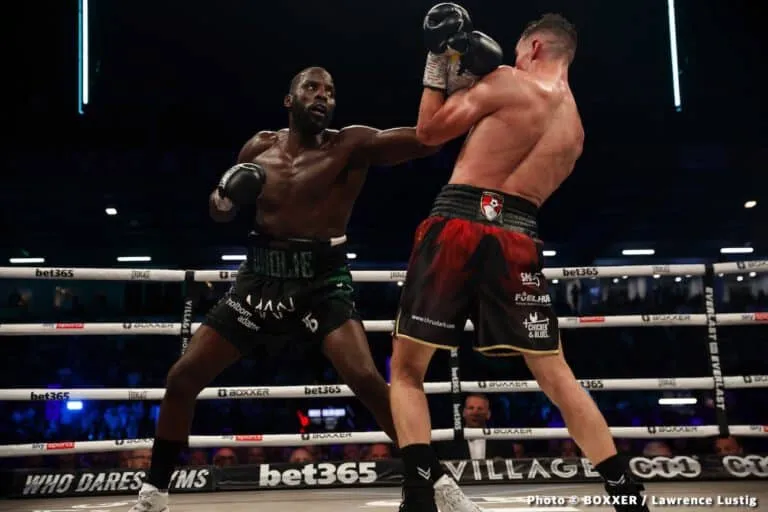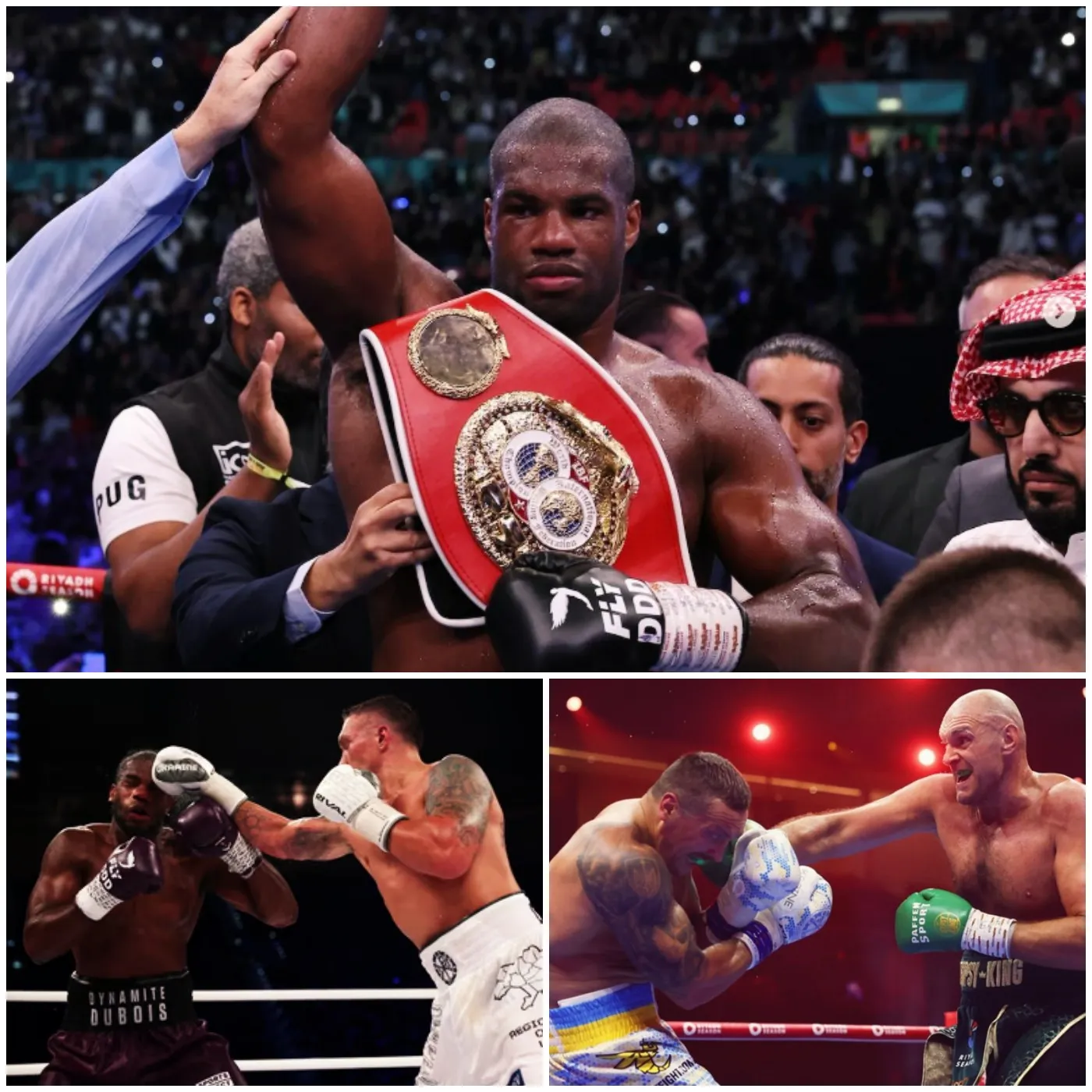Has Deontay Wilder’s Excuses Made Him the Sorest Loser in Boxing History?
Deontay Wilder is a name that is almost synonymous with knockout power. His reputation as one of the most dangerous heavyweights in the world has been built on a devastating right hand that has sent opponents to the canvas time and time again. However, in the aftermath of his losses to Tyson Fury, Wilder’s behavior […]

Deontay Wilder is a name that is almost synonymous with knockout power. His reputation as one of the most dangerous heavyweights in the world has been built on a devastating right hand that has sent opponents to the canvas time and time again. However, in the aftermath of his losses to Tyson Fury, Wilder’s behavior has sparked widespread debate. Has Deontay Wilder’s excuses made him the sorest loser in boxing history?
The question isn’t simply about the losses themselves, but how Wilder has responded to them. From blaming his ring gear to conspiracy theories about his defeats, Wilder’s explanations for his losses have attracted as much attention as his knockout victories. Some boxing fans and critics argue that his constant deflections and refusal to accept defeat gracefully have done more damage to his reputation than the losses themselves.

The Fury Trilogy: A Tale of Defeat and Excuses
Wilder’s encounters with Tyson Fury have been nothing short of legendary. Their first bout in 2018 ended in a controversial split draw, but many believed that Fury had done enough to win. Their rematch in 2020, however, was a different story. Fury dominated Wilder, knocking him out in the seventh round and claiming the WBC heavyweight title. The loss was brutal, and Wilder was clearly outclassed in every department.
Rather than accepting the defeat, Wilder’s response was filled with excuses that quickly became headlines. He claimed that his heavy costume—which he wore during his ring walk—was to blame for his exhaustion and lack of energy during the fight. Wilder even suggested that the costume, weighing over 40 pounds, had drained him before he even stepped into the ring. This explanation seemed to raise more questions than it answered, with many questioning why Wilder hadn’t adequately prepared for such a crucial fight.
Excuses: A Sign of Insecurity or a Smokescreen for Failure?
So, what do these excuses say about Wilder? Some critics argue that his post-loss behavior is a sign of deep insecurity. Rather than acknowledging that his technical limitations were exposed in the ring, Wilder has lashed out with outlandish explanations for his failure. This refusal to accept the reality of his losses suggests a lack of maturity and self-awareness. It’s almost as if Wilder cannot cope with the idea that his own shortcomings—not external factors—led to his defeat.
In many ways, these excuses reflect a psychological barrier that Wilder may not be ready to overcome. If a fighter cannot accept a loss as a result of their own flaws, it becomes incredibly difficult to improve and move forward. By blaming external factors, Wilder shields himself from having to confront the truth: that Fury’s superior boxing skills, preparation, and tactics were the reasons for his losses.
Some observers also suggest that Wilder’s excuses have become a deflection tactic—a way of protecting his public image. If Wilder admits that he was outboxed by Fury, it would be an acknowledgment that his legacy as an elite heavyweight is in jeopardy. Instead, he clings to the notion that external factors beyond his control were the true reasons for his downfall, allowing him to maintain the image of the undefeated knockout king.

Damage to Reputation: Are Wilder’s Excuses Hurting His Legacy?
Wilder’s inability to accept his defeats gracefully has not only affected his public image but also damaged his reputation in the boxing community. After all, boxing fans value a fighter who can show humility and sportsmanship, particularly in the face of defeat. Fury’s own responses to their fights were a study in contrast—Fury acknowledged Wilder’s power and even praised his opponent after their bouts, showing a level of respect that Wilder’s excuses have often lacked.
Wilder’s continual stream of excuses has made him a figure of ridicule for some fans. Many argue that his actions only serve to overshadow his accomplishments. Yes, Wilder still holds the record for one of the highest knockout ratios in heavyweight boxing history. But the more he clings to his excuses, the less his actual achievements seem to matter.
Instead of being remembered for his incredible power and exciting knockouts, Wilder risks being remembered as a fighter who could not accept defeat, someone whose pride and ego prevented him from growing as a boxer. In a sport that reveres fighters for their mental toughness as much as their physical prowess, Wilder’s inability to move on from his losses reflects poorly on him as a person and a competitor.
The Long-Term Impact on Wilder’s Career
Another downside of Wilder’s excuses is that they may limit his future growth as a fighter. In boxing, as in any sport, the ability to learn from one’s mistakes is crucial for improvement. If Wilder continues to blame external factors rather than analyzing his performance in the ring, he may never truly evolve as a fighter. His refusal to take responsibility for his defeats only serves to perpetuate his flaws, making it harder for him to adjust his approach to future challenges.
Is It Time for Wilder to Move On?
The question remains: is Deontay Wilder ready to move on from his excuses and accept his place in the history of heavyweight boxing? Will he ever be able to embrace his losses as part of the process of growth, or will he continue to find ways to deflect blame? Many boxing enthusiasts hope that Wilder can one day reflect on his losses with the grace and dignity expected from a fighter of his caliber. Only then will he be able to rebuild his legacy—not as a sore loser, but as a true competitor who can bounce back from defeat.
In the end, Wilder’s excuses have certainly overshadowed his losses and contributed to an image that may be difficult to recover from. However, it’s not too late for him to change course. If he can come to terms with his defeats, show humility, and focus on improving his skills, Wilder may still have the chance to repair his reputation and leave a lasting legacy as one of boxing’s greats.










































